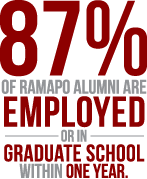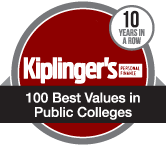College Catalog: 2015-2016
Neuroscience
Website: School of Social Science and Human Services
Convener:
Faculty:
Students will gain an understanding of the organization of the nervous system as well as an appreciation of the interdisciplinary nature of neuroscience and the study of mind, brain, and behavior. Courses offered will allow students to explore the interaction between neural structure and function via the brain’s relation to behaviors such as motor control, basic sensory processes (e.g., audition, proprioception, and vision), higher cognition (e.g., attention, memory, learning and language) and emotional processing. Major theories of brain-behavior relations will be studied. Several of these topics include behavioral neuroscience and learning, perception, and cognitive neuroscience.
- At least 1/2 of the courses fulfilling a minor must be distinct from the student’s major. That is, three of the five courses required for a minor cannot be used towards fulfillment of major requirements. A school core does not need to be completed for a minor. Minors are open to students regardless of school affiliation.
NEUROSCIENCE MINOR
- Subject & Course # – Title & Course Description
- REQUIRED (These should be completed first and may be prerequisites for some of the electives):
- PSYC 101 - INTRODUCTION TO PSYCHOLOGY
- BIOL 101 - INTRODUCTION TO BIOLOGY OR
- BIOL 110 - FUNDAMENTALS OF BIOLOGY I: LECTURE AND LAB
- SELECT AT LEAST THREE ADDITIONAL COURSES FROM THIS LIST:
- PSYC 209 - PSYCHOLOGY OF PERCEPTION
- PSYC 310 - NEUROPSYCHOLOGY
- PSYC 352 - BEHAVIORAL NEUROSCIENCE
- PSYC 353 - COGNITIVE NEUROSCIENCE
- CHEM 115 - PRINCIPLES OF CHEMISTRY I: LECTURE AND LAB OR
- CHEM 205 - BIO-ORGANIC CHEMISTRY LEC/LAB **
- PSYC 430 - ADVANCED TOPICS IN PSYCHOLOGY (Neuroscience and Philosophy) **
**These courses may also be counted for the minor, however, they include additional prerequisites.
School of Social Science and Human Services Website
Faculty Profiles






